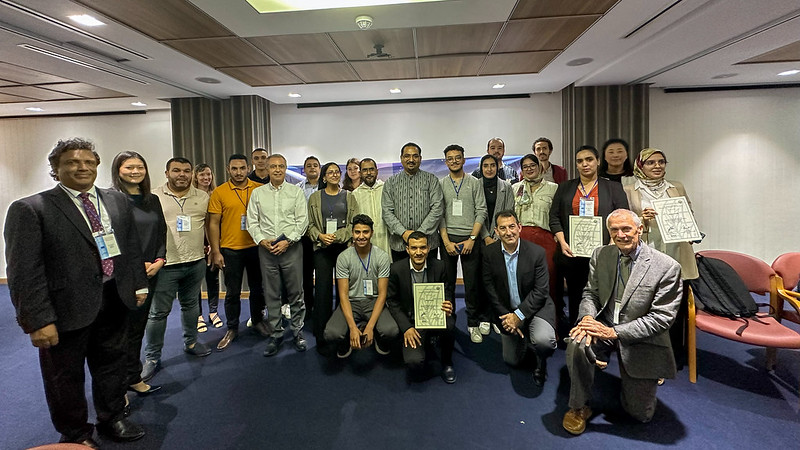How do Deaf Individuals Access Housing and Other Basic Needs?
Image by barynz on Openverse
It is clear to anyone that reads history that society is quite different from what it was in the past. Many things occurred in the past that would be considered unthinkable today. At the same time, many things remained the same.
One of those things is the unique ways deaf individuals navigate a world with sound. They still have hurdles to overcome to have a normal life and some of these hurdles have existed for as long as there have been deaf people.
One challenge deaf individuals face is access to housing and basic needs. Yes, there is a general housing crisis, but for deaf individuals, there has always been one. Getting an apartment that suits a deaf person’s needs can be challenging. In addition to that, there is also the struggle of getting other basic needs like groceries.
In this article, we will examine how deaf individuals make the best of a difficult situation, and see if there are things the hearing community can do to lower these hurdles.
Why Access to Housing Affects a Deaf Individual’s Quality of Life
Image by barynz on Openverse
When a person loses their hearing, they live life by being eliminated from many social interactions by default. They can’t hear what their family and friends are saying and have to communicate through means that the hearing community doesn’t use. This isolates them by default.
Isolated people will struggle with many things including income opportunities. With low income, there are fewer housing opportunities. The low-income opportunities affect housing for deaf people in two ways. First, they aren’t able to afford safe housing, and second, they are discriminated against in the rental market.
With poor housing, deaf people are exposed to all sorts of hazards, including unsanitary conditions, household accidents, robberies, and assaults.
So, many deaf people are forced to rely on relatives and partners that aren’t deaf for quality housing. This might sound like a good idea but it isn’t the best in all circumstances. A deaf adult that is being abused can’t easily find a place to live alone and might remain in that abusive environment.
Access to housing is a need deaf people have and one that the hearing community has ignored for so long. The question is: how then, do they access housing and basic needs?
How Deaf Individuals Access Housing and Other Basic Needs
Image by Walmart on Openverse
There is a popular saying that goes “When life gives you lemons, make lemonade.” Deaf people are one of the best ‘lemonade makers’ in the world because they find ways to overcome challenges daily.
Deaf individuals have ways they get access to housing and other basic needs.
They Search For Deaf-friendly Apartment Buildings
Imagine you want to rent an apartment and are a dog owner. Automatically, you know that many landlords won’t accept your offer, especially in large cities. So, the logical thing to do when hunting for an apartment is to search for dog-friendly apartment buildings.
Deaf individuals use a similar principle to access housing. A deaf-friendly apartment will have a landlord that doesn’t mind taking in a deaf tenant.
You might wonder what deaf-friendly apartments look like. Well, they are buildings, designed with deaf people in mind. Such buildings are called DeafSpaces and usually follow certain principles like extended sensory reach, sufficient space, proper lighting, and fewer electromagnetic vibrations.
They find such buildings on the internet or through adverts in deaf communities and networks. The challenge is that deaf-friendly apartment buildings aren’t as many as they should be.
Family Representation
Sometimes people need help from others to achieve certain things. The world wouldn’t be what it is today without help. In certain cases, deaf individuals need help to access housing.
Deaf individuals also access housing by getting a family member to negotiate and interact with various house owners. This is a way to overcome the language barrier and negotiate adequately.
In some cases, the family member puts their name on the lease while the deaf individual lives in the apartment. It is a good workaround for a deaf individual that doesn’t get housing due to discrimination.
However, it can breed resentment and other social problems if the housing agency is reluctant about letting a deaf individual live in the building. The family member and the deaf individual must be honest about their situation.
The Internet
There is a chance that everything a man needs to live can be found and bought on the Internet. That includes housing and other basic needs.
Deaf individuals know this, which is why they search the Internet for housing opportunities. There are various listings with different specifications they can choose from. On the internet, they can chat with landlords and find one that is willing to house a deaf person.
Deaf people also shop online as it is safer and easier than commuting to stores. They can access groceries, pay their bills, and meet other basic needs just fine online.
However, not everyone is connected to the internet or can afford internet services and this limits deaf individual’s access to housing and other basic needs.
How Can Access to Housing and Basic Needs be Improved
Although some deaf individuals can access housing and meet their basic needs, there are still difficulties for a large part of the community. To improve the quality of life of the deaf community, society must come together.
First, there has to be legislation that encourages and then mandates housing agencies to make buildings deaf-friendly and so have accessibility options for the hard of hearing. Governments have to ensure housing is accessible to their deaf population.
Secondly, there has to be better internet access as it makes a ton of difference for deaf people. Internet service providers should take their services to more rural locations.
Finally, there has to be better awareness among the hearing population. There should be public education on the needs of deaf people and how society can help.
Conclusion
It has been established that housing and other basic needs will affect a person’s quality of life. For deaf individuals, access to these things is a big problem and a hurdle they struggle to surmount every day.
However, they have come up with ways to gain access to proper housing like searching for deaf-friendly buildings, using the Internet, and getting a representative.
Still, there is more that the government and society at large can do for the hard of hearing. More people can make a difference in the lives of deaf individuals by learning ASL because finding people who understand your language has a way of setting your heart at ease as you navigate the world.
Allow the learning resources from SignBee Academy to help you make that difference.
Image by barynz on Openverse
It is clear to anyone that reads history that society is quite different from what it was in the past. Many things occurred in the past that would be considered unthinkable today. At the same time, many things remained the same.
One of those things is the unique ways deaf individuals navigate a world with sound. They still have hurdles to overcome to have a normal life and some of these hurdles have existed for as long as there have been deaf people.
One challenge deaf individuals face is access to housing and basic needs. Yes, there is a general housing crisis, but for deaf individuals, there has always been one. Getting an apartment that suits a deaf person’s needs can be challenging. In addition to that, there is also the struggle of getting other basic needs like groceries.
In this article, we will examine how deaf individuals make the best of a difficult situation, and see if there are things the hearing community can do to lower these hurdles.
Why Access to Housing Affects a Deaf Individual’s Quality of Life
Image by barynz on Openverse
When a person loses their hearing, they live life by being eliminated from many social interactions by default. They can’t hear what their family and friends are saying and have to communicate through means that the hearing community doesn’t use. This isolates them by default.
Isolated people will struggle with many things including income opportunities. With low income, there are fewer housing opportunities. The low-income opportunities affect housing for deaf people in two ways. First, they aren’t able to afford safe housing, and second, they are discriminated against in the rental market.
With poor housing, deaf people are exposed to all sorts of hazards, including unsanitary conditions, household accidents, robberies, and assaults.
So, many deaf people are forced to rely on relatives and partners that aren’t deaf for quality housing. This might sound like a good idea but it isn’t the best in all circumstances. A deaf adult that is being abused can’t easily find a place to live alone and might remain in that abusive environment.
Access to housing is a need deaf people have and one that the hearing community has ignored for so long. The question is: how then, do they access housing and basic needs?
How Deaf Individuals Access Housing and Other Basic Needs
Image by Walmart on Openverse
There is a popular saying that goes “When life gives you lemons, make lemonade.” Deaf people are one of the best ‘lemonade makers’ in the world because they find ways to overcome challenges daily.
Deaf individuals have ways they get access to housing and other basic needs.
They Search For Deaf-friendly Apartment Buildings
Imagine you want to rent an apartment and are a dog owner. Automatically, you know that many landlords won’t accept your offer, especially in large cities. So, the logical thing to do when hunting for an apartment is to search for dog-friendly apartment buildings.
Deaf individuals use a similar principle to access housing. A deaf-friendly apartment will have a landlord that doesn’t mind taking in a deaf tenant.
You might wonder what deaf-friendly apartments look like. Well, they are buildings, designed with deaf people in mind. Such buildings are called DeafSpaces and usually follow certain principles like extended sensory reach, sufficient space, proper lighting, and fewer electromagnetic vibrations.
They find such buildings on the internet or through adverts in deaf communities and networks. The challenge is that deaf-friendly apartment buildings aren’t as many as they should be.
Family Representation
Sometimes people need help from others to achieve certain things. The world wouldn’t be what it is today without help. In certain cases, deaf individuals need help to access housing.
Deaf individuals also access housing by getting a family member to negotiate and interact with various house owners. This is a way to overcome the language barrier and negotiate adequately.
In some cases, the family member puts their name on the lease while the deaf individual lives in the apartment. It is a good workaround for a deaf individual that doesn’t get housing due to discrimination.
However, it can breed resentment and other social problems if the housing agency is reluctant about letting a deaf individual live in the building. The family member and the deaf individual must be honest about their situation.
The Internet
There is a chance that everything a man needs to live can be found and bought on the Internet. That includes housing and other basic needs.
Deaf individuals know this, which is why they search the Internet for housing opportunities. There are various listings with different specifications they can choose from. On the internet, they can chat with landlords and find one that is willing to house a deaf person.
Deaf people also shop online as it is safer and easier than commuting to stores. They can access groceries, pay their bills, and meet other basic needs just fine online.
However, not everyone is connected to the internet or can afford internet services and this limits deaf individual’s access to housing and other basic needs.
How can Access to Housing and Basic Needs be Improved
Although some deaf individuals can access housing and meet their basic needs, there are still difficulties for a large part of the community. To improve the quality of life of the deaf community, society must come together.
First, there has to be legislation that encourages and then mandates housing agencies to make buildings deaf-friendly and so have accessibility options for the hard of hearing. Governments have to ensure housing is accessible to their deaf population.
Secondly, there has to be better internet access as it makes a ton of difference for deaf people. Internet service providers should take their services to more rural locations.
Finally, there has to be better awareness among the hearing population. There should be public education on the needs of deaf people and how society can help.
Conclusion
It has been established that housing and other basic needs will affect a person’s quality of life. For deaf individuals, access to these things is a big problem and a hurdle they struggle to surmount every day.
However, they have come up with ways to gain access to proper housing like searching for deaf-friendly buildings, using the Internet, and getting a representative.
Still, there is more that the government and society at large can do for the hard of hearing. More people can make a difference in the lives of deaf individuals by learning ASL because finding people who understand your language has a way of setting your heart at ease as you navigate the world.
Allow the learning resources from SignBee Academy to help you make that difference.




